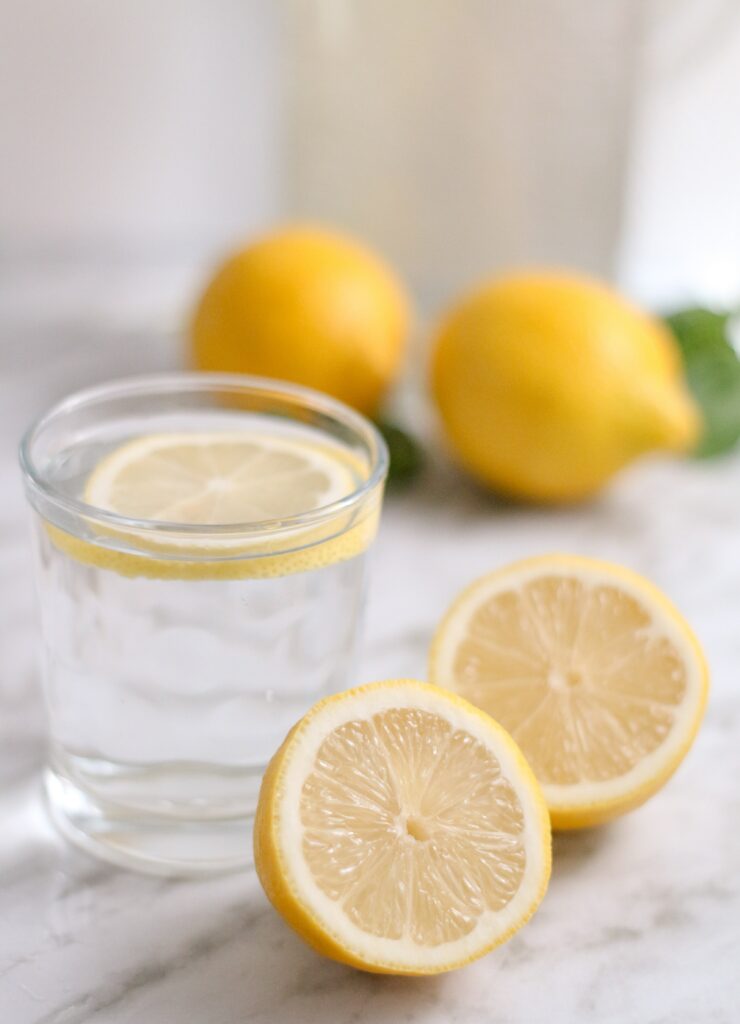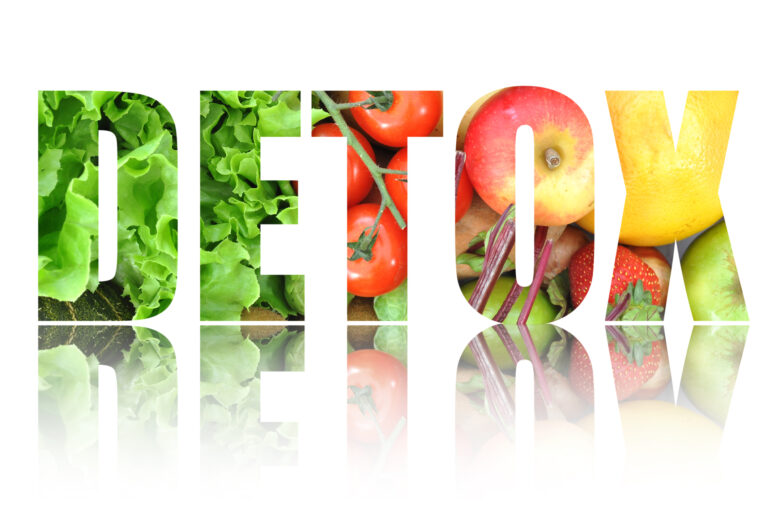How to Detox the right way

Your body is frequently exposed to toxic substances (air pollution, water quality, processed food etc) and it is important to regularly stop, rebalance and reenergise to ensure good health and prevent all sorts of illnesses.
A detox offers an array of benefits, ranging from losing weight and boosting energy levels to improving the function of your internal organs and warding off chronic diseases. It is often referred to as ‘spring cleaning your body’. Removing toxic substances that have accumulated in your body lowers the blood pressure, improves liver function, addresses brain fog and chronic fatigue and enhances your mood. It also helps with chronic inflammation, allergies, digestive issues, hormonal imbalances, blood sugar regulation and skin issues. By detoxing, you are helping your body to maintain its homeostasis or internal balance while adjusting to changing external conditions.
What is Detox?

Detoxification is a natural process that your body already performs to eliminate toxins and waste products. By eliminating the toxins that have built up from your lifestyle and diet, you will feel healthier and more energised. You can support your body’s natural detoxification through healthy choices. You can also choose to undertake a detox to lose weight. Detox diets are generally short-term dietary interventions designed to eliminate toxins from your body. A typical detox diet involves drinking a lot of fluids and following a healthy diet full of fruit and vegetables. You don’t have to fast when going through a detox and please be aware that fasting is not recommended for every metabolism. You can include herbs, juicing, supplements, herbal teas and colon cleanses in your detox programme depending on which organs your body needs to target for the detox to be effective. If you are aiming to lose weight, go for herbal detoxes. They consist of natural herbs that gently sweep out toxins, regulate blood sugar levels and revive the functions of the main digestive organs.
Should I Detox?
The resounding answer to that is “yes”. It is possible to prevent both immediate negative impacts on the body and long-term negative repercussions by taking the time to clear the body of toxins.
Regular cleansing enable all the body functions to work more efficiently, it helps support a strong immune system, reducing the risk of infections and promoting overall well-being. When combined with a balanced diet and exercise, detoxifying practices that focus on whole foods, reduced sugar and processed food intake can support healthy weight management.
When is the right time to detox?

There is no specific “best” time to detox your body, as the body’s natural detoxification processes are ongoing.
However, you can decide to give a little helping hand to your body by detoxing after periods of unhealthy eating, overindulgence, or exposure to environmental toxins.
Typical times to undergo a detox programme are :
- Post-holiday season to help reset your eating habits and support the elimination of any excess toxins from the body.
- Seasonal Transitions: such as spring or autumn, as a way to support their bodies as they adapt to changes in weather or eating patterns.
- Personal Reset: If you feel that your body needs a reset or if you’ve been experiencing symptoms like low energy, digestive issues, or skin problems, you may consider a detoxification program to support your overall well-being.
- Exposure to Toxins: If you have been exposed to certain toxins due to environmental or occupational factors, consult with your naturopath about appropriate steps to support detoxification processes.
What to expect when detoxing?

When you start to detox your body, it can leave you feeling tired as your body is eliminating the toxins. This feeling is perfectly normal, some people get slightly lightheaded at the beginning too. As your body readjusts to a new normal, all of your systems can experience changes, especially your digestive system.
Don’t be put off by these, they are a good sign.
It means that your body is responding and working to establish a new level of equilibrium and well-being. Your skin will then look healthier as toxins are flushed out. Breakouts, rashes, and acne may increase at the beginning but then quickly clear up. Supporting the body’s natural detoxification processes through healthy habits contribute to improved skin health by reducing inflammation, balancing oil production, and supporting collagen production. You may also notice fewer cravings for unhealthy foods, sugar, caffeine and alcohol.
How to Detox

There are many ways to do a detox : ranging from total starvation fasts (which I do not recommend) to simple food changes. Please find below some naturopathic advice to help you detox in a safe & healthy way, so you can support your body’s natural detoxification and achieve overall wellbeing :
-
Stay hydrated : It is very important to drink plenty of water throughout the day to help flush out toxins and support optimal kidney and lymphatic function. A big glass of lime or lemon water in the morning helps quick start the process.
-
Eat a balanced diet : Focussing on consuming whole, nutrient-dense foods such as fruits, vegetables, whole grains, lean proteins, and healthy fats is essential. Try to include foods that specifically support liver health such as cruciferous vegetables (broccoli, cauliflower), garlic, turmeric, beets, leafy greens (spinach, kale), and green tea. Suppress all sugary drinks, excessive salt intake and processed foods (they contain additives and preservatives that burden the liver) during a detox.
-
Increasing fibre intake : Include fibre-rich foods like fruits, vegetables, legumes (beans), whole grains, nuts, and seeds in your diet to support regular bowel movements and aid the elimination of waste products.
-
Limiting alcohol consumption : Excessive alcohol consumption can put stress on the liver and impair its ability to effectively detoxify the body. Moderation is key to keeping healthy, and during a detox, alcohol should be avoided or minimised to let the liver do its primary job : detox your body!
-
Reducing refined sugar intake: We all know that high sugar consumption is linked to various health issues. If you have a sweet tooth, opt for natural sweeteners like honey or maple syrup when needed.
-
Exercising regularly : Exercise helps stimulate blood circulation and the lymphatic flow in your body whilst promoting sweating—both of which aid the elimination of toxins through the skin. You don’t have to go to the gym 3 times a week, even walking 20 minutes a day is a good start if you are not used to exercise.
-
Good sleep hygiene : Quality sleep allows your body time to repair properly whilst supporting your overall health and well-being. Have a look at our article ‘How to get good quality sleep’ for tips on how to sleep better.
-
Managing stress levels : Chronic stress impacts many body functions including your digestive and immune systems. Both of which are very important parts of the detoxification process. That’s why it is essential to find healthy ways to manage stress. Regular exercise, walks in nature, aromatherapy, or relaxation techniques (meditation or breathing exercises ) will all help.
-
Supporting a healthy liver : The liver is THE KEY ORGAN involved in detoxification. You can support its function by consuming foods such as cruciferous vegetables (broccoli, cauliflower), garlic, turmeric, and green tea. However, it is important to note that specific liver conditions should be addressed with guidance from a healthcare professional. Do not hesitate to ask your naturopath or herbal medicine practitioner for help.
How often should I detox ?

It is recommended to detox twice a year, ideally at the beginning of spring and autumn. The detox periods don’t have to be long. These short-term interventions enable you to eliminate the toxins from your body. They can last from a few days to a few weeks depending on past medical history, lifestyle and desired outcome.
Your naturopath can guide you to the most appropriate detox for your constitution and the length of time you should be doing it for.
Happy Detox !
Categories
- Ashwagandha (1)
- Detox (1)
- Detox (1)
- Dry January (1)
- Gut Health (1)
- Immunity (3)
- Lifestyle (5)
- Sleep (1)
- Wellbeing (3)
- Winter blues (1)

No Comments